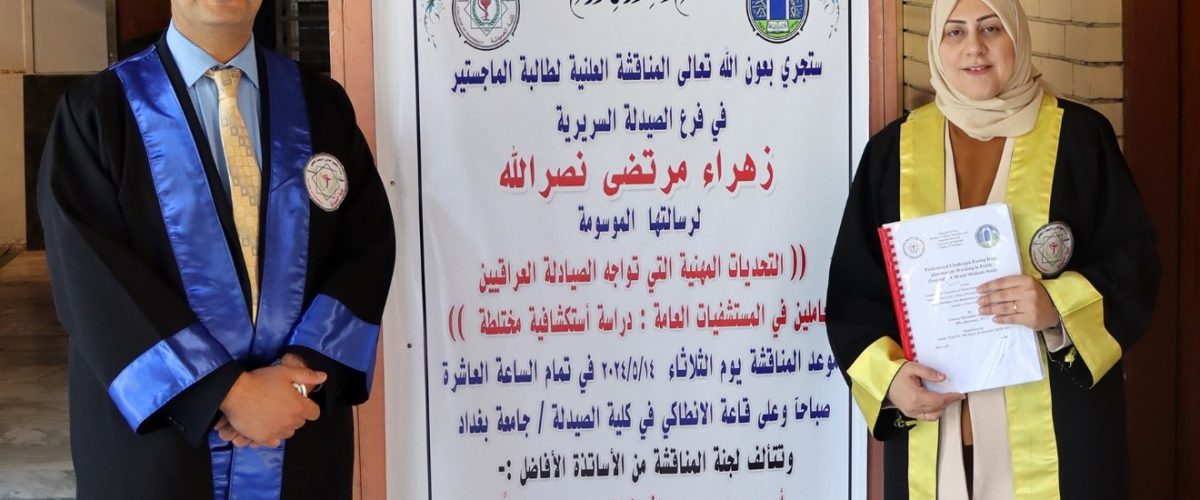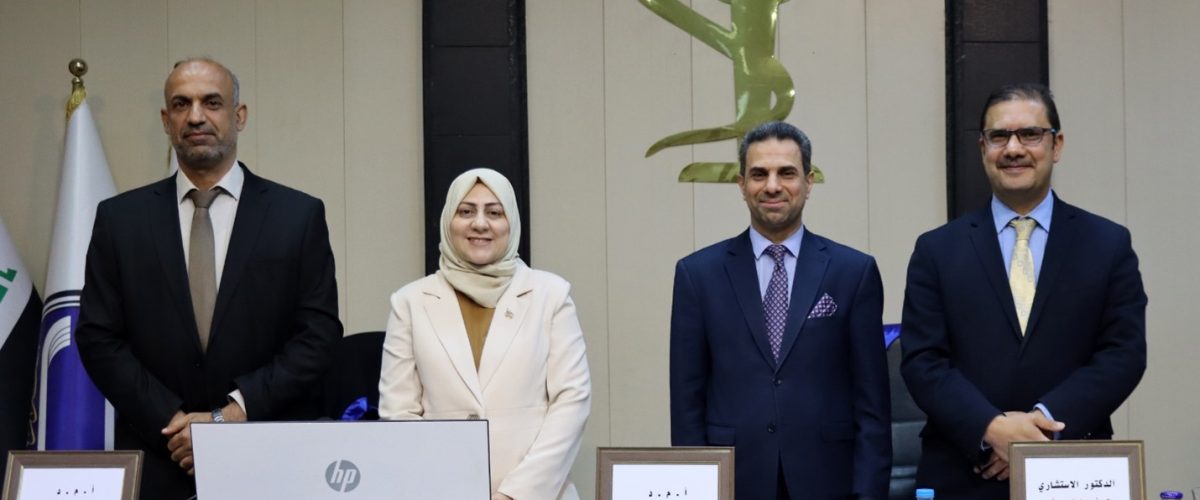The College of Pharmacy discussed the master thesis, entitled “Professional Challenges Facing Iraqi Pharmacists Working in Public Hospitals: A Mixed Methods Study” by the student Zahraa Murtadha Nassrullah and her supervisor, Assistant Professor Dr. Ali Azeez Al-Jumaili, at the Clinical Pharmacy Department. The study aimed to explore in depth the perspectives of Iraqi pharmacists regarding the professional challenges and obstacles facing them in public hospitals. Furthermore, it explored the underlying reasons contributing to these barriers as well as provided pragmatic recommendations to improve hospital pharmacists’ performance and qualifications. The study included two phases: a qualitative and a quantitative phase. The qualitative phase took place in five public hospitals in Karbala/Iraq consisted of face-to-face semi-structured interviews with hospital pharmacists. The interviews were audio-recorded. The data obtained from this phase was thematically analyzed. Thereafter, the quantitative phase comprised surveys in both English and Arabic versions. It has been distributed by social media groups of pharmacists throughout all Iraqi governorates in addition to in-person visits to pharmacists at their work setting in Karbala. It survey consisted of many questions concerned with the barriers facing hospital pharmacists, representing 19 potential barrier domains. The qualitative phase consisted of 32 interviewed pharmacists who were onsite by the researcher. The overarching theme was “the quantity over quality” of new pharmacists. Some of these challenges were related to the pharmacists themselves (such as an increase in pharmacists’ numbers with sub-optimal competencies, and inequity in pharmacists’ contributions). The other challenges were related to organizational and hospital conditions (such as sub-optimal hospital environment, inadequate hospital resources, and suboptimal interdisciplinary collaborations). In the quantitative phase, the study received 308 completed surveys from hospital pharmacists. Fifteen Iraqi provinces participated in this survey. The survey responses revealed that the shortage of medications in hospitals is the most recurrent challenge. The study identified several organizational challenges facing hospital pharmacists. Additionally, the participants highlighted the suboptimal clinical competency of newly graduated pharmacists. The study also recognized the inadequate hospital training received during college. Furthermore, the hospital environment and resources were suboptimal and negatively impacted pharmacists’ performance. The current hospital’s Continuing Medical Education (CME) was ineffective to enhance the qualifications of new pharmacists. According to the study findings, greater emphasis should be placed on improving pharmacist competency, the pharmacists’ role in hospitals, multidisciplinary teamwork, and securing the supply of essential medicines .Most participants recommend enhancing the quality over quantity of pharmacists in addition to expanding pharmacist roles to accommodate the large number of new pharmacists. The college student/faculty ratio should be adequate to ensure that students can receive proper hospital training during their college program. Finally, there is a need to enhance the collaboration between the Ministry of Higher Education, and the Ministry of Planning in terms of avoiding the admission of an overwhelming number of pharmacy students that exceed college and hospital capacities.





